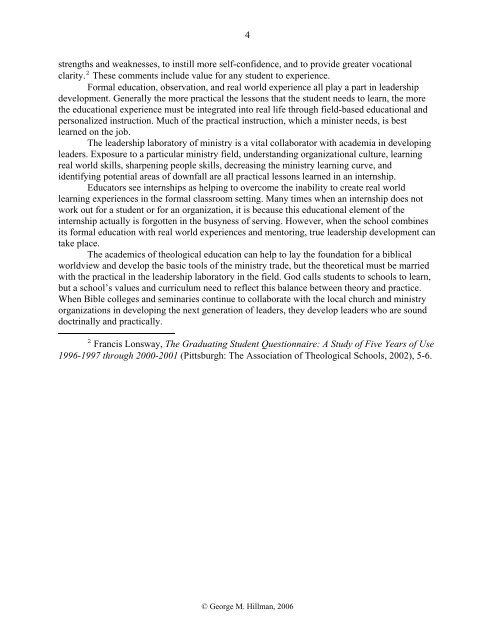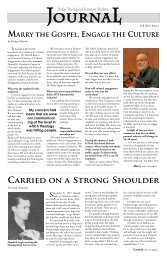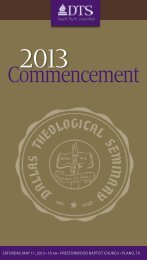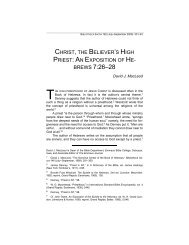THE IMPORTANCE OF INTERNSHIPS - Dallas Theological Seminary
THE IMPORTANCE OF INTERNSHIPS - Dallas Theological Seminary
THE IMPORTANCE OF INTERNSHIPS - Dallas Theological Seminary
Create successful ePaper yourself
Turn your PDF publications into a flip-book with our unique Google optimized e-Paper software.
4strengths and weaknesses, to instill more self-confidence, and to provide greater vocationalclarity. 2 These comments include value for any student to experience.Formal education, observation, and real world experience all play a part in leadershipdevelopment. Generally the more practical the lessons that the student needs to learn, the morethe educational experience must be integrated into real life through field-based educational andpersonalized instruction. Much of the practical instruction, which a minister needs, is bestlearned on the job.The leadership laboratory of ministry is a vital collaborator with academia in developingleaders. Exposure to a particular ministry field, understanding organizational culture, learningreal world skills, sharpening people skills, decreasing the ministry learning curve, andidentifying potential areas of downfall are all practical lessons learned in an internship.Educators see internships as helping to overcome the inability to create real worldlearning experiences in the formal classroom setting. Many times when an internship does notwork out for a student or for an organization, it is because this educational element of theinternship actually is forgotten in the busyness of serving. However, when the school combinesits formal education with real world experiences and mentoring, true leadership development cantake place.The academics of theological education can help to lay the foundation for a biblicalworldview and develop the basic tools of the ministry trade, but the theoretical must be marriedwith the practical in the leadership laboratory in the field. God calls students to schools to learn,but a school’s values and curriculum need to reflect this balance between theory and practice.When Bible colleges and seminaries continue to collaborate with the local church and ministryorganizations in developing the next generation of leaders, they develop leaders who are sounddoctrinally and practically.2 Francis Lonsway, The Graduating Student Questionnaire: A Study of Five Years of Use1996-1997 through 2000-2001 (Pittsburgh: The Association of <strong>Theological</strong> Schools, 2002), 5-6.© George M. Hillman, 2006
















